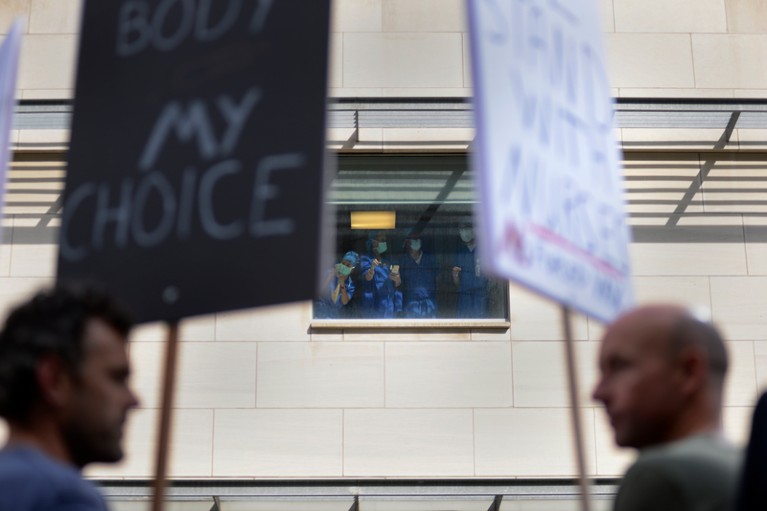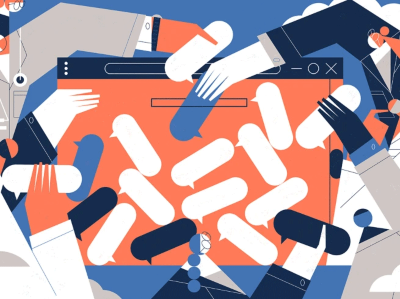
The COVID-19 vaccination polarized opinion — and our memories.Credit: Arindam Shivaani/NurPhoto via Getty
Lives are still being lost to COVID-19 every day. And for many left with debilitating after-effects of the disease, it remains a very real, immediate experience. But for many others, the circumstances of the pandemic are becoming a matter of memory. These memories might still be fresh and painful, or more distant and neutralized by the passage of time. Either way, they are almost undoubtedly unreliable.
This is not, in itself, a surprise: that different people can have very different memories of the same past events, and that pre-existing biases can influence these memories, is an established facet of human psychology. But a series of studies reported in a paper1 this month in Nature shows that our impressions of the COVID-19 pandemic’s severity, as well as of measures taken to limit the disease’s spread, are reliably skewed by a related factor: our vaccination status.
The results give pause for thought as countries exercise their collective memories to examine how authorities handled the pandemic and what should be done differently next time. “When looking back, we should all be aware that we have biased memories,” says Cornelia Betsch at the University of Erfurt in Germany, an author of the Nature paper. “You could be right or wrong. I could be right or wrong. Or, most likely, we’re all wrong.”

Can giant surveys of scientists fight misinformation on COVID, climate change and more?
Betsch and her colleagues’ project involved surveying more than 10,000 people across 11 countries. For one study, they resurveyed German adults who had been asked in summer 2020 or winter 2020–21 to estimate their risk of SARS-CoV-2 infection, asking them to recall their earlier answers. They embarked on the project in late 2022, after a journalist commented during a conference that people who opposed vaccination seemed to be shifting their narrative of the pandemic. The authors’ analysis revealed that unvaccinated individuals who identified strongly with their unvaccinated status were more likely to remember their earlier estimation of the risk as lower than it actually was. Conversely, and more markedly, those who had been vaccinated overestimated their earlier perception of their risk of catching the disease.
As with any study, there are caveats. The data were collected online, and most of the countries sampled are wealthy and in the Northern Hemisphere. The study did not evaluate the effect of the different pandemic policies enacted in different regions. The researchers also surveyed only adults. At this stage, there is no way of knowing how children will remember the pandemic when they are older — or how those memories might colour their decisions should another pandemic occur when they are adults.
Memory bias has been observed in other politically charged settings, including recall of COVID-19 vaccine misinformation2, the campaign surrounding Ireland’s 2018 referendum on legalizing abortion3 and the 2021 US Capitol riots4. Such bias feeds polarization. Communication is difficult when shared memories diverge. It can influence discussions at every level: within families, in the media and within governments and other authorities.

Pioneers of mRNA COVID vaccines win medicine Nobel
The conclusions of the latest study are highly relevant to investigations such as the ongoing inquiry into the United Kingdom’s handling of COVID-19, a process that has been garnering headlines in the past weeks. Those overseeing such investigations must recognize that personal recollections are clouded by bias. In drawing conclusions about which pandemic interventions were warranted or effective and which were not, it is imperative that investigators rely as much as possible on hard data and evidence.
Many of the conflicts we struggle with today stem from how we view past events now, rather than how we experienced them then. The divergence in our collective memory is also likely to be a significant factor in future pandemics, determining, for example, whether individuals are willing to comply with the associated public-health mandates. How to counter these effects in the future must be a subject for more research today.
